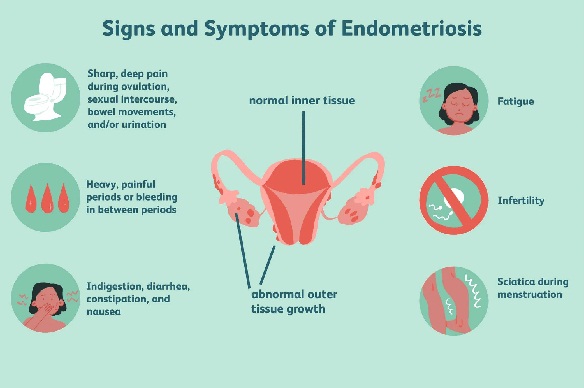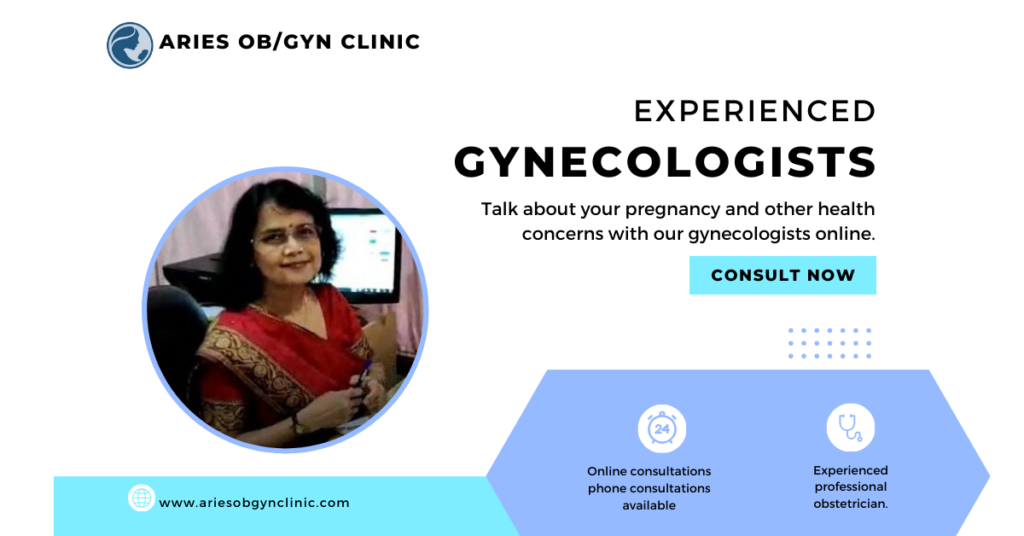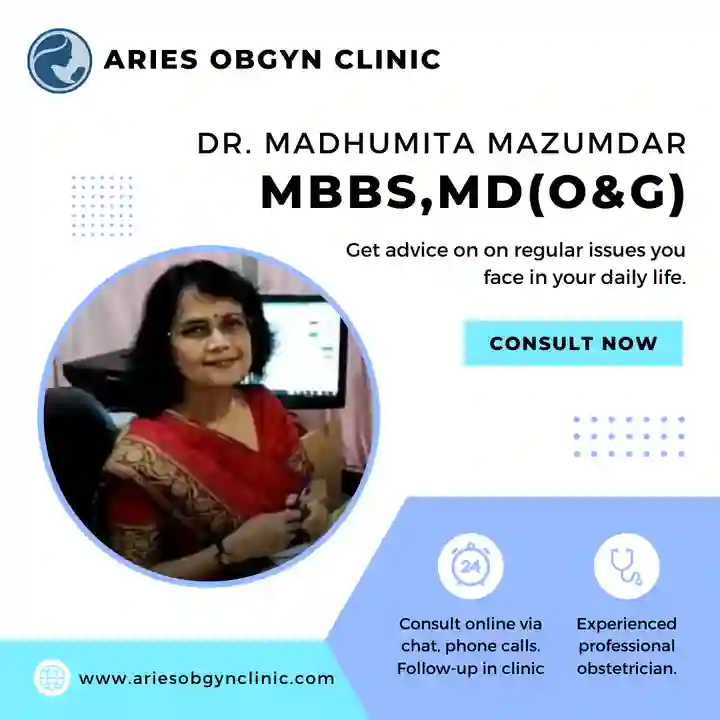Endometriosis is a common disease which can cause a lot of distress in women – it is closely associated with chronic pain and infertility
What is Endometriosis?
Endometriosis is a condition in which the tissue similar to the lining inside your uterus, known as the endometrium, starts to grow outside your uterus. These growths can occur on your ovaries, Fallopian tubes, the outer surface of your uterus, and other organs within your pelvis. This tissue behaves like regular endometrial tissue – it thickens, breaks down, and bleeds with each menstrual cycle. However, because it’s outside your uterus, the blood has no way to exit your body – the collected blood causes inflammation and formation of scar tissue.
What Causes Endometriosis?
The exact cause of endometriosis remains unknown, but several theories exist:
- Retrograde Menstruation: This is the most widely accepted theory. It suggests that menstrual blood flows backward through the fallopian tubes into the pelvic cavity instead of leaving the body. These endometrial cells then implant on pelvic organs.
- Embryonic Cell Transformation: Hormones like estrogen might transform embryonic cells into endometrial cell implants during puberty.
- Surgical Scars: After surgeries such as a hysterectomy or Cesarean section, endometrial cells can attach to the surgical incision.
- Immune System Disorders: Problems with the immune system might make the body unable to recognize and destroy endometrial tissue growing outside the uterus.
- Genetics: Endometriosis can run in families, indicating a possible genetic link.
What are the common sites of Endometriosis?
Some commons sites where the endometrium grows are :
- Around the ovaries
- On the body of the Uterus
- Behind the uterus in the Pouch of Douglas
- On the surface of the rectum
- In the tissues around the ovaries and uterus ( adnexa)

What are the symptoms of Endometriosis?
Symptoms of endometriosis can vary. In mild cases, there may be no symptoms at all. More severe cases can cause:
- Pelvic Pain: This is the most common symptom. Pain can range from mild to severe and often correlates with your menstrual cycle. However, some women experience pain all the time.
- Menstrual Irregularities: Heavy periods (menorrhagia), irregular periods or bleeding between periods (menometrorrhagia) can occur.
- Pain During Intercourse: Pain during or after sex is common with endometriosis. This is more common if there are endometriotic growths on the rectum or the Pouch of Douglas – an area behind the uterus.
- Pain with Bowel Movements or Urination: These symptoms are most likely to occur during your period. Pain is more common when there is constipation with hard stools.
- Infertility: Endometriosis may be diagnosed in women seeking treatment for infertility. Endometriosis and infertility are very loosely related.
Other symptoms can include fatigue, diarrhea, constipation, bloating, and nausea, especially during menstrual periods.

How is Endometriosis diagnosed?
Diagnosing endometriosis can be difficult because its symptoms are similar to other conditions like ovarian cysts and irritable bowel syndrome (IBS).
- Medical History and Physical Exam: Your doctor will ask you about your symptoms and may perform a pelvic exam to feel for cysts or scars behind your uterus.
- Imaging Tests: Ultrasounds and MRIs can help identify endometrial cysts but might not detect smaller implants.
- Laparoscopy: This is the gold standard for diagnosing endometriosis. During this surgical procedure, a camera is inserted through a small incision in your abdomen to directly visualize and possibly take a biopsy of the endometrial tissue. The endometriosis tissue can also be cauterized at the same time.
How is Endometriosis Treated?
Treatment for endometriosis often depends on the severity of your symptoms and whether you plan to have children. Here are the common treatment options:
- Pain Management: Over-the-counter pain relievers like ibuprofen can help manage mild pain. For more severe pain, you may need stronger medications.
- Hormonal Therapies: Hormones can reduce or eliminate the pain of endometriosis by slowing the growth of endometrial tissue and preventing new endometriotic growths. Options include:
- Hormonal Contraceptives: Birth control pills, patches, and vaginal rings reduce menstrual flow and prevent the growth of endometrial implants.
- Gonadotropin-Releasing Hormone (Gn-RH) Agonists and Antagonists: These drugs block the production of ovarian-stimulating hormones, reducing estrogen levels and preventing menstruation.
- Progestin Therapy: Progestin can reduce or eliminate menstruation and the associated pain.
- Aromatase Inhibitors: These drugs reduce the amount of estrogen in your body.
- Surgical Treatment: If you have severe endometriosis, you might need surgery to remove as much endometrial tissue as possible. Options include:
- Laparoscopy: This minimally invasive surgery can remove endometrial growths, scar tissue, and cysts.
- Hysterectomy: In severe cases, a hysterectomy (removal of the uterus) and possibly the ovaries might be recommended. This is usually a last resort.
- Fertility Treatment: If endometriosis affects your fertility, treatments like in vitro fertilization (IVF) may be needed to remove endometriotic scars and improve the anatomy of the uterus and ovaries.
- Lifestyle and Home Remedies: Certain lifestyle changes can help manage symptoms:
- Regular Exercise: Helps with pain relief by releasing endorphins, which are natural pain relievers.
- Heat Therapy: Heating pads or warm baths can relax pelvic muscles and reduce pain.
- Dietary Changes: Some women find relief by avoiding certain foods that cause inflammation, such as dairy, gluten, and processed foods. Omega-3 fatty acids and antioxidants can help reduce inflammation.
What are the Complications of Endometriosis?
While endometriosis is primarily known for causing pelvic pain and menstrual irregularities, it can lead to several other complications.
- Infertility – One of the commonest causes of infertility in women is endometriosis. Endometriosis can cause inflammation and cyst formation around the ovaries which can affect ovulation. Adhesions and scars can also cause distortion of the normal anatomy of the Fallopian tubes and preventing the egg and sperm from meeting.
- Chronic Pain – Chronic pelvic pain is a common complication of endometriosis. This pain can be debilitating and affect various aspects of your life. Pain can affect daily activities – simple tasks like walking or sitting can become painful. Pain during intercourse can strain intimate relationships and decrease sexual satisfaction. Persistent pain can lead to anxiety, depression, and decreased quality of life.
- Ovarian Cysts (Endometriomas) – Endometriomas, also known as “chocolate cysts,” are cysts that are filled with dark, thick blood. They form on the ovaries. Endometriomas can cause acute pain, especially during the periods and during sexual intercourse. They can also damage the ovarian tissue and cause infertility. In some cases, endometriosis undergo torsion and may need emergency surgery.
- Adhesions and Scar Tissue – The chronic inflammation caused by endometriosis can lead to the formation of adhesions, which are bands of scar tissue that bind organs together. These can cause bowel obstruction, bladder and bowel dysfunction or pelvic organ displacement.
- Impact on Quality of Life – Endometriosis can significantly impact your overall quality of life. Persistent pain and fatigue can make it difficult to maintain a normal routine. Dealing with chronic pain and fertility issues can lead to emotional stress, anxiety, and depression. The pain and discomfort can limit your ability to participate in social activities and maintain relationships. Frequent pain and the need for medical appointments can affect your ability to work and be productive.
Living with endometriosis can be challenging, but with the right treatment and support, you can manage your symptoms effectively.
Read Questions and Answers on Pregnancy and Gynecology
5 Things You Must Know About HPV
HPV ( Human Papilloma Virus ) infection is a common sexually transmitted disease across the world. It is highly contagious and spreads through direct skin-to-skin
Why Do I Bleed During Ovulation? Uncovering Causes and How to Stop Ovulation Spotting
Understanding Ovulation Bleeding: A Patient’s Journey Dr. Madhumita Mazumdar recently consulted with a young woman who was concerned about what she perceived as irregular and
Ovulation Bleeding: Understanding Light Bleeding and Spotting Between Periods
When a young woman came to see me with concerns about irregular and short menstrual cycles, it presented an opportunity to shed light on a
Ovulation Bleeding Explained: What Causes It, How to Stop Spotting, and Is It a Sign of Pregnancy?
Ovulation Bleeding: Understanding the Causes and Solutions Ovulation bleeding is a common yet often misunderstood phenomenon that affects many women. Recently, I had the opportunity
Is Abdominal Pain Normal in Early Pregnancy? Understanding Cramps and Common Causes at 8 Weeks
Dr. Madhumita Mazumdar recently had a consultation with a young woman experiencing abdominal pain during early pregnancy. This blog post aims to address the concerns
Understanding Abdominal Pain During Early Pregnancy: Causes, Cramps, and What’s Normal at 8 Weeks
Abdominal Pain During Early Pregnancy: Understanding the Causes and Solutions Pregnancy is an exciting time, but it can also bring unexpected challenges. Recently, I had


